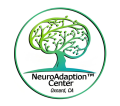Revitalize Your Independence with Geriatric Physical Therapy at NeuroAdaption Center in Oxnard, CA
Rediscover Strength, Balance, and Freedom
Aging doesn’t have to mean losing your independence. At the NeuroAdaption Center, we specialize in geriatric physical therapy tailored to improve mobility, reduce pain, and enhance your quality of life. Whether you’re managing chronic conditions, recovering from injury, or addressing balance issues, our innovative therapy programs can help you stay active and confident.
Why Choose the NeuroAdaption Center for Geriatric Physical Therapy?
- Innovative Technology
Our patented, FDA-certified NeuroAdaption system combines advanced technology with targeted therapy to provide immediate results. Strengthen your entire body, improve posture, and enhance your ability to move freely. - Holistic Approach
We treat the whole person, addressing not only your pain but the root causes of mobility issues. This ensures a comprehensive recovery and long-term improvement in your daily quality of life. - Immediate, Noticeable Improvements
Many patients experience significant results during their first session. From increased walking speed to reduced falls, our programs help you regain confidence and independence.
Our Geriatric Physical Therapy Services Include:
- Balance and Posture Training: Reduce your risk of falls and improve stability.
- Gait Training: Increase walking speed and distance with task-specific exercises.
- Strengthening and Flexibility: Enhance overall mobility and regain control over everyday movements like standing, sitting, or reaching.
- Pain Management: Address chronic pain effectively with customized treatment plans.
- Bone Health Support: Increase bone density to strengthen your skeletal system.
What to Expect
Personalized Treatment Plans
Your journey starts with a comprehensive evaluation by our expert team, including neuro adaption specialists and osteopathic doctors. We’ll develop a custom plan tailored to your unique needs, targeting specific goals like reducing pain, improving movement, and regaining independence.
Proven Techniques and Progress Tracking
Our program uses task-specific training and neuro-rehabilitative techniques to reawaken dormant neural pathways. Each session is carefully documented to monitor your progress and make necessary adjustments.
Support for Daily Activities
Whether it’s putting on clothes, climbing stairs, or gardening, our therapy helps you regain the freedom to perform everyday activities with ease.
Transform Your Life Today
Imagine a life without the fear of falling or the frustration of limited mobility. At the NeuroAdaption Center, we’re dedicated to helping you reclaim your independence and improve your quality of life.
Call us now at (805) 431-1118 or visit neuroadapter.com to schedule your free consultation. Let us help you take the first step toward a stronger, healthier, and more active life.
Served areas in Oxnard:
El Rio
Hollywood Beach
Hollywood by the Sea
Nyland
Owl Mobile Manor
Oxnard Beach
Oxnard Shores
Channel Islands
La Colonia
Kamala Park
Lemonwood Eastmont
Oxnard Dunes
Five Points Northeast
Seaview Estates
Hobson Park East
Pleasant Valley Village
Blackstock South
Bartolo Square South
Hobson Park West
Windsor North River Ridge
Bryce Canyon North
Marina West
Bryce Canyon South
Redwood
Blackstock North
Cal-Gisler
Rio Lindo
Pleasant Valley Estates
Fremont North
Cabrillo
El Rio West
Orchard Park
Sea Air
West Village
Bartolo Square North
Carriage Square
South Winds
Terrace Estates
Sierra Linda
Fremont South
Cypress Gardens
College Estates
Rose Park
College Park
Wilson
